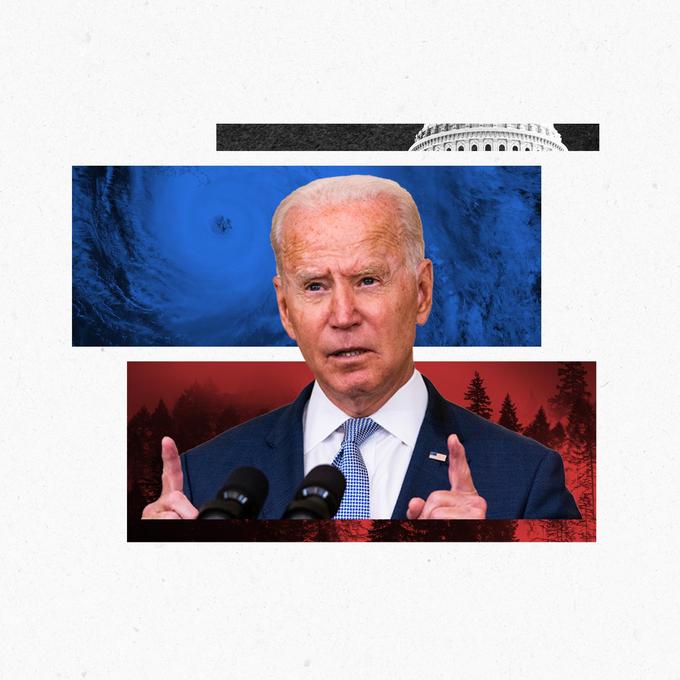The free laptop program built into the Biden reconciliation plan
After months of negotiations, President Joe Biden’s Build Back Better agenda advanced into its last phase of debate this week. The bipartisan infrastructure bill contains billions to expand high-speed broadband across the country, aiming to close the digital divide over the next 10 years.
But the administration’s $65 billion down payment on broadband can only help connect families who can afford a computer. So Biden’s latest version of the Build Back Better program goes further, allocating new funds to bring federally funded desktops, laptops, and tablets to poor Americans.
Last week, the White House released its latest version of the Build Back Better plan, outlining a $1.75 trillion budget proposal to tackle climate change and invest in other social services like Medicare. Deep within the over 1,600 pages of the bill is a new initiative — the Connected Device Grant Program — that would help provide free or discounted desktops, laptops, or tablets to low-income households. To accomplish that goal, the Commerce Department would receive $475 million to award community groups that want to distribute these devices locally.
“We can invest all of this money in the infrastructure package in broadband deployment,” said Jenna Leventoff, Public Knowledge senior policy counsel, in an interview with The Verge last week, “but we’re not going to close the digital divide if we don’t make sure people have the computers and tablets they need.”
As of June of this year, only four in 10 lower-income adults have access to a desktop or laptop computer, and a majority are not tablet owners, according to the Pew Research Center. Only 43 percent of low-income adults have access to in-home broadband connections as well. These devices and technology are prevalent in households making $100,000 or more every year.
The device program has been championed by Sen. Raphael Warnock (D-GA) and Rep. A. Donald McEachin (D-VA), who introduced the Device Access for Every American Act in September. The original bill would have established a $5 billion Federal Communications Commission program to distribute up to $400 vouchers to low-income Americans for computers and tablets. The language was later roped into the Build Back Better budget reconciliation package and amended into the nearly half a billion grant program currently authorized under the measure.
“It is nearly impossible to get by without access to a laptop or tablet — especially after a year of adjusting to virtual learning, working, and more,” Warnock said in a Monday statement to The Verge. “My bill will help ensure every American, regardless of their income or zip code, has the ability to participate and thrive in our increasingly digital economy.”

While a majority of lower-income adults own smartphones, experts argue that mobile devices are not enough for people to compete and advance in the digital economy.
“A mobile phone isn’t sufficient. It’s not where I work. It’s not where I write my resume. It’s not where I work on spreadsheets,” Angela Siefer, National Digital Inclusion Alliance executive director, said. “Folks have been getting by with a mobile phone, but you certainly can’t thrive with only a mobile phone.”
Funding the program through the grant model leaves the specifics of implementation up to local groups, which could include anything from housing authorities to local libraries. Experts like Siefer and Leventoff also expect the private sector to play a significant role in distributing devices once the grant funding is approved by Congress. Hoping to stretch the grant dollars further, community groups could partner with device manufacturers to buy devices in bulk or offer them at a discounted rate.
Microsoft launched its own free or low-cost refurbished device program called Airband earlier this year. The program partners with civil society organizations to provide devices to poor Americans. Starting in Los Angeles and New York City, the program expects to roll out to six more cities in the coming months.
Many universities offer loaner devices to adult students, but these laptops or tablets usually must be returned after the school year ends. This means adult learners might not have access to free or low-cost devices until the following school year.
“There’s a big difference between using a loaner computer and having your own,” Siefer said. “It’s the understanding of what you can do with it. You’ll play with the settings. We all learn by doing that. There’s huge value in ownership over loan programs.”
In a Tuesday call with House Democrats, Speaker Nancy Pelosi (D-CA) said she expects to finish negotiations over lingering issues, like climate and drug pricing, before the end of the day. This could set up a final vote on both the bipartisan infrastructure and budget reconciliation packages on the House floor either Thursday or Friday, according to Politico.
While the infrastructure package was approved by the Senate earlier this year, the budget proposal could face an uphill battle in the higher body. On Monday, Sen. Joe Manchin (D-WV) called the social spending framework a “shell game, budget gimmicks that make the real cost of the so-called $1.75 trillion bill estimated to be almost twice that amount.” Manchin and Sen. Kyrsten Sinema (AZ), both moderate Democrats, have been at the center of negotiations over the budget proposal that has shrunk dramatically in size compared to its initial $3.5 trillion goal. Democrats need Manchin and Sinema’s support in order to pass the resolution and overcome a razor-thin majority in the Senate.
Even if the reconciliation is approved within the next few days and weeks, it would be months before local groups could receive grant funding through the device program. The Commerce Department agency in charge of allocating the money would still need to approve new rules for the program, which could take months after the measure is approved.
Still, Warnock is optimistic that the program will remain in the bill. “I’m glad we’ve been able to include it in the major economic package we’re debating in Washington, and I’m not going to stop working until we get it passed,” Warnock said on Monday.








